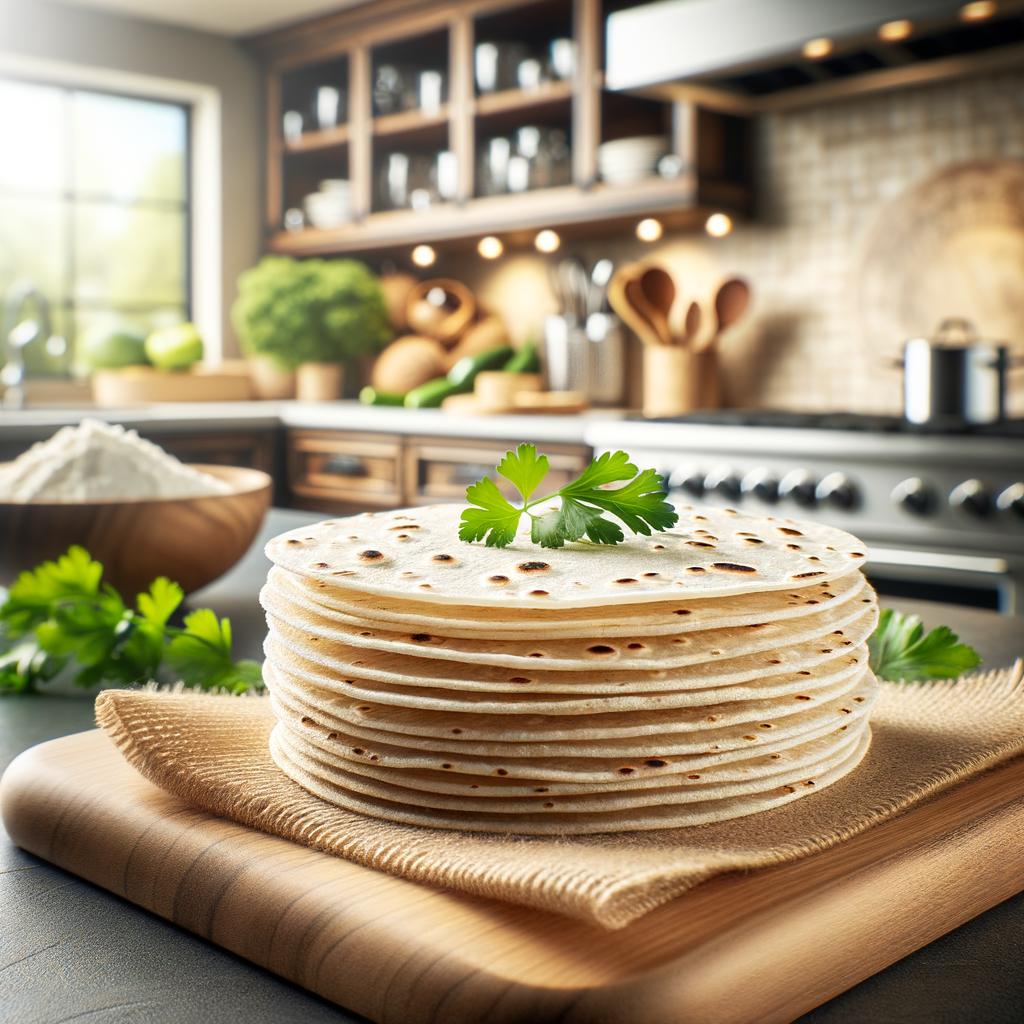Coconut Flour Tortillas

Description
Coconut flour is a delightful ingredient, a soft, fine powder with a faintly sweet and nutty aroma. A byproduct of coconut milk production, it's pale beige in color, with a texture that's much lighter and airier than traditional wheat flour. The flavor profile is gently sweet and subtly coconutty, making it a versatile ingredient that can be used in both sweet and savory dishes. What sets coconut flour apart from other flours is its high fiber content and its gluten-free nature, making it a favored choice for those with dietary restrictions or preferences.
Primary Uses
Coconut flour is renowned for its versatility in the culinary world. It's commonly used in baking, where it lends a unique texture and delicate coconut flavor to breads, muffins, pancakes, and yes, tortillas. Coconut flour tortillas are a delicious, gluten-free alternative to traditional wheat tortillas, offering a slightly sweet twist to your favorite Mexican dishes. Beyond its culinary uses, coconut flour is also used in some cultures for its skincare benefits, thanks to its natural oil-absorbing properties.
History
The history of coconut flour is as exotic as the ingredient itself. The use of coconuts and their byproducts can be traced back thousands of years to ancient South Asia and the Pacific Islands, where they were a staple in the local diet. The process of making coconut flour, which involves drying and grinding the coconut meat after the milk has been extracted, is a traditional method that has been passed down through generations. Its use in Western cuisine is relatively recent, gaining popularity as a gluten-free alternative in the last decade. There are many folktales associated with coconuts, including the belief in some cultures that they symbolize resilience and perseverance due to their ability to grow in harsh conditions and provide sustenance in many forms.
Nutritional Information
Coconut flour is a powerhouse of nutrition. It's packed with fiber, healthy fats, and protein, making it a nourishing alternative to wheat flour. It's also rich in iron, and contains traces of other essential minerals like potassium and magnesium. The high fiber content aids digestion and can help to regulate blood sugar levels, while the medium-chain triglycerides (MCTs) found in coconuts are known for their energy-boosting properties. Compared to other flours, coconut flour has fewer carbohydrates and more fiber, making it a popular choice for low-carb and ketogenic diets. As always, moderation is key, as coconut flour is also more calorie-dense than other flours.

